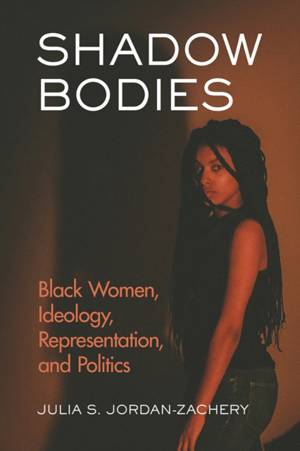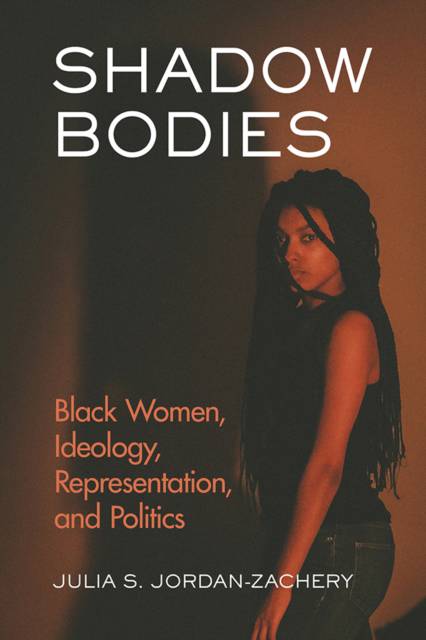
- Retrait gratuit dans votre magasin Club
- 7.000.000 titres dans notre catalogue
- Payer en toute sécurité
- Toujours un magasin près de chez vous
- Retrait gratuit dans votre magasin Club
- 7.000.000 titres dans notre catalogue
- Payer en toute sécurité
- Toujours un magasin près de chez vous
Shadow Bodies
Black Women, Ideology, Representation, and Politics
Julia S Jordan-Zachery
Livre relié | Anglais
254,45 €
+ 508 points
Description
What does it mean for Black women to organize in a political context that has generally ignored them or been unresponsive although Black women have shown themselves an important voting bloc? How for example, does #sayhername translate into a political agenda that manifests itself in specific policies? Shadow Bodies focuses on the positionality of the Black woman's body, which serves as a springboard for helping us think through political and cultural representations. It does so by asking: How do discursive practices, both speech and silences, support and maintain hegemonic understandings of Black womanhood thereby rendering some Black women as shadow bodies, unseen and unremarked upon? Grounded in Black feminist thought, Julia S. Jordan-Zachery looks at the functioning of scripts ascribed to Black women's bodies in the framing of HIV/AIDS, domestic abuse, and mental illness and how such functioning renders some bodies invisible in Black politics in general and Black women's politics specifically.
Spécifications
Parties prenantes
- Auteur(s) :
- Editeur:
Contenu
- Nombre de pages :
- 214
- Langue:
- Anglais
Caractéristiques
- EAN:
- 9780813593401
- Date de parution :
- 27-10-17
- Format:
- Livre relié
- Format numérique:
- Genaaid
- Dimensions :
- 163 mm x 227 mm
- Poids :
- 453 g







